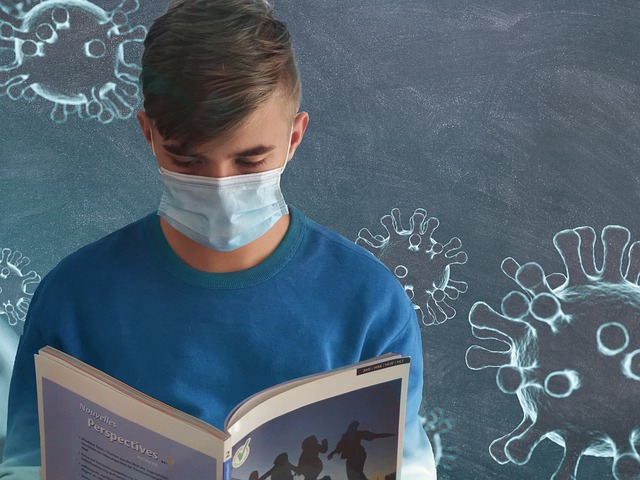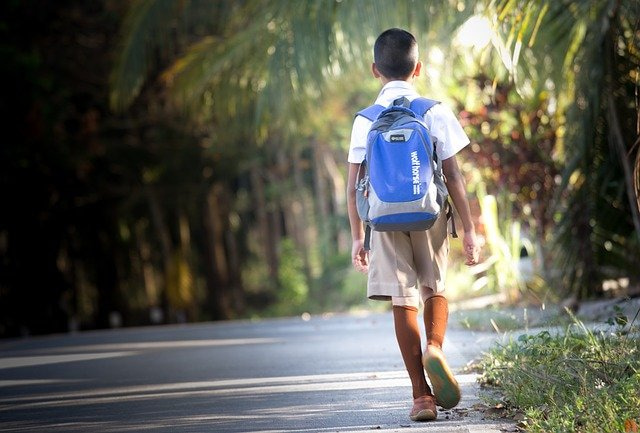School is starting up for the 2021 – 2022 education year and most districts are returning to in-person learning. While some kids and parents deal with anxieties during any given school year, COVID-19 and the Delta variant are still very much in the news, which has added more uncertainty for everyone.
Virtual learning took place this past school year and many kids may now find it difficult to adjust to being away from the safety of their homes. Those children who already suffered with pre-existing depression or anxiety might have an even more difficult time adjusting than normal. Even well-adjusted children may experience undue stress.
What Signs Of Stress Can Be Observed In Children During The COVID-19 Pandemic?
Generally speaking, kids are resilient. Most children will manage this transition just fine with help and support from their parents. Those who already struggled with anxiety or emotional problems before the pandemic might need additional assistance though; it’s important that you keep a watchful eye on them because they could be at risk for increased depression or anxiety.
Signs of stress to watch for include (by age group):
Preschool age – Children in this age group may be more whiny or clingy than usual. They may have problems sleeping, have nightmares, or become afraid of the dark when they weren’t before. You may also find that they withdraw or their behavior may regress. They may lose their appetite or become picky eaters.
Ages 5 – 9 – Children who are in elementary school also may be clingier. They may be angrier or more irritable and cry or otherwise resist to going to school. They might have nightmares and sleep problems, along with poor concentration. In addition, your child may stop showing interest in friends or activities they used to enjoy.
Ages 10 – 19 – Adolescent children may show everything from sleeping and eating disturbances to agitation or arguments with others. They may have physical complaints such as headaches or stomach aches. They may also exhibit poor concentration or engage in some type of delinquent behavior.
Back To School Anxiety For Parents During The Pandemic
The pandemic has made in-person schooling nerve-wracking for some parents. They are apprehensive about their child’s health and well being, but they also have to try to reassure their child that school will be safe for them. It can feel like a balancing act between supporting your kid while also telling him/her to be sure to wear their mask or stay socially distant from others. It’s all very stressful!
Dealing with stress and fear is a learned skill. Children need to learn how to react when faced with difficult situations. They benefit from having someone show them how to deal with worrisome situations without panicking and who can find positive ways of handling their fears.
To keep them safe in school, ensure your child knows how to wear a mask correctly (it should cover their nose and mouth). Teach them to carry and use hand sanitizer and how to wash their hands (wash for the time it takes to sing the birthday song). Make sure they understand how social distancing helps to reduce the spread of the virus. Teach them to cough into their elbow or a tissue and to throw a used Kleenex away immediately.
Lastly, protect your child’s health by encouraging them to eat well, get plenty of sleep and exercise daily. This will help build their immunity so they can fight off illness in the future.
Supporting Students Return To School During Covid
Going back to a physical classroom is a transition and, as with any big change, it will take time for your child to settle into a new routine. Expect there to be times of distress and upset for the first couple of weeks. This is particularly true during the pandemic when kids are having to adjust to so many new things.
Your child may be overly tired during the first few weeks of school. They might act out more often or be more emotional than usual. If there are major shifts from their normal behavior, however, such as refusing to take part in things they usually enjoy or withdrawing from friends, this could signal problems. You should consider seeking help if this behavior doesn’t go away after a couple of weeks.
Also, make the time to sit down and talk to your kids during the first few weeks of school. Encourage them to tell you what’s bothering them; acknowledge their concerns even if you don’t agree with them. When you know what is concerning your child, work with them to come up with a plan for addressing it. What can you, as the parent, do to help? Is there something the child can do? Does the school need to get involved?
Self care is vital for maintaining your own physical, emotional and mental well being. One way to do this is by engaging in calming activities such as yoga or crafting. What were some ways that made you feel better before the pandemic? Use what worked for you during previous times of stress, be it reading, exercising, listening to music, etc. Even just taking a small break can help you mentally regroup and make you feel less overwhelmed. Take a short walk around the block or indulge in some deep breathing exercises. You don’t have to take a long break – even just taking 15 minutes here and there will help.
We Are Here For You
If you are concerned that your child is struggling with anxiety or depression when they go back to school, contact The Children’s Center for Psychiatry Psychology and Related Services in Delray Beach, Florida or call us today at (561) 223-6568.


